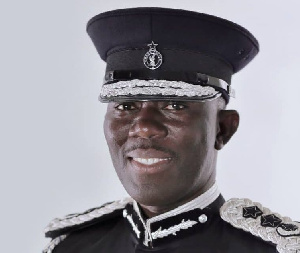Free SHS is good but won’t negate us – CAMFED

The managers of the Campaign for Female Education (CamFEd) Ghana have announced that the implementation of the free Senior High School (SHS) policy has in no way negated their operations.
According to them, though the free SHS policy is good there are other areas their organization needs to work on.
“We as an organization, the introduction of the free shs is something that we are very happy with because to a very large extent it’s going to take some financial burden on a parent…..but our main focus is on the girls and we have been having some interactions with them [beneficiaries], teachers and other interested players in the education space, and the feedback we are getting is that the policy is good but we should not forget other equally important aspects of what it takes to educate a child,” says John Asibi-Ali, the national director of CamFEd Ghana.
Mr Asibi-Ali was responding to a question from a participant at a CAMFED Ghana-Media Partnership meeting held at Mankessim in the Mfantseman municipality of the central region on Thursday, as to how relevant is CAMFED since the inception of the free shs.
According to the director, the organization contacted the appropriate government authorities when the free shs was introduced to look at what government would provide to the girls (the Camfed beneficiaries) and they realised that it was not everything that the organization was providing that government would provide them so the organization came out with a revised package which would address some of the items that the free shs would not cover.
He added further that the policy has aided the organization to channel some of it funds into selecting more girls into the program, saying, ” for example, instead of selecting 1,000 students and give them all the entitlements they need in addition to pay their fees, this time because the fees are paid by government, all we need to do is only concentrate on their entitlement so we select more…..so I want all of you to know that the free shs has not come to actually change the way we work.”
CAMFED, established in Ghana in 1998, currently operates in six regions including central region, 31 districts and partners with 860 schools across Ghana.
It works in four other Africa countries namely, Zimbabwe, Zambia, Tanzania and Malawi.
The meeting was aimed at building a mutually-beneficial strategic partnership with the media as partners in development.
Participants were presented to, CAMFED’s programmes, Key Performance Indicators (KPI) up to 2017, and Research Study on Teacher Mentoring.
Mr Asibi-Ali, in his welcome address revealed amongst other things that CAMFED had a working partnership with the National Board for Small Scale Industries (NBSSI) for implementation of entrepreneurship component of their transition program which has been designed among others, to enable young women to transit from school to entrepreneurship, further study, employment and transformative leadership in Ghana and added, they were “in the process of establishing partnership with COTVET and NVTI to promote TVET sector in Ghana”.
Presenting the organization’s Evidence of Investment (EoI), Samuel Asare-Danquah, M&E manager of CAMFED Ghana, revealed that the organization had from 1998 to 2017, amongst others supported 2, 387 young women to start businesses; 428, 717 students had been directly supported to go to school plus 68, 908 who received bursary support; 2, 299 Teacher Mentors had been trained to support girls in all 860 CAMFED partner schools; 8, 541 Camfed Alumni (CAMA) members have been trained in businesses skills; and $2, 823, 860 monetary value of resources had been contributed by community members and CAMA to support children go to school.





Source: Kojo Ata Kakrah Abrowah




